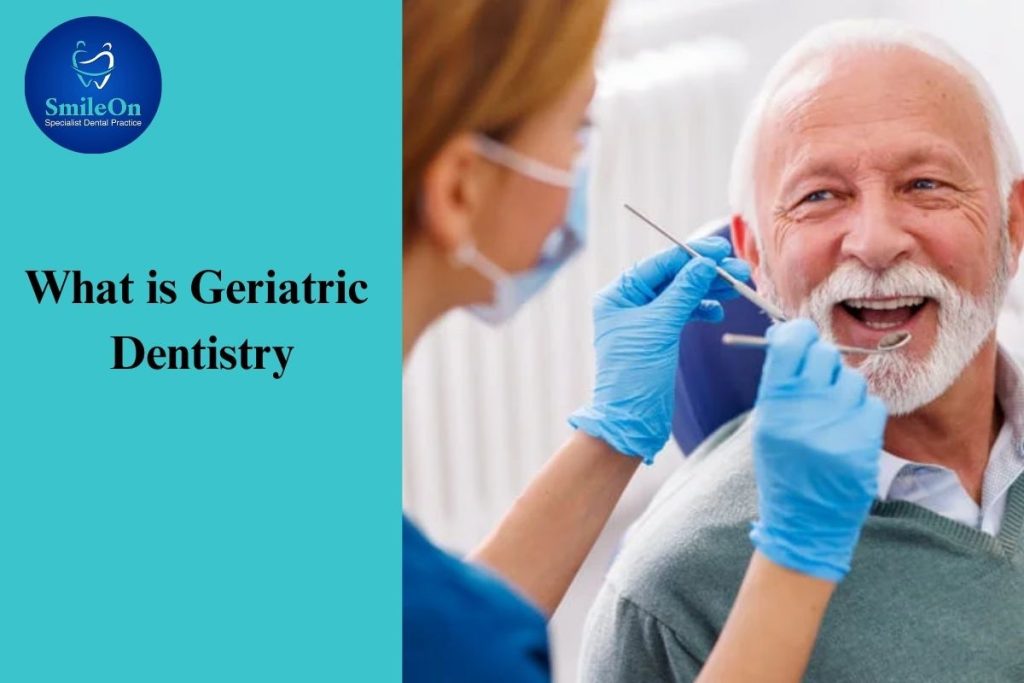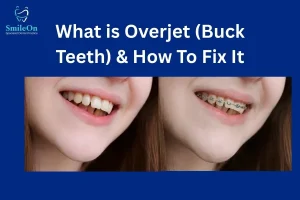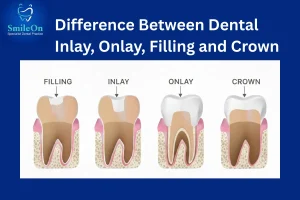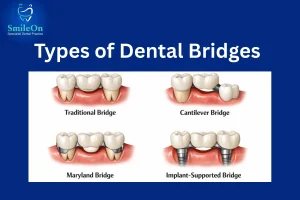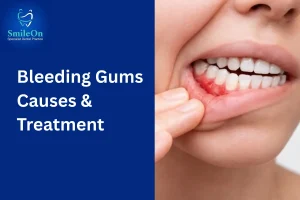The older we get, the more we need dental health. Geriatric dentistry is a field focused on addressing the special oral health needs of older adults to help them keep their teeth strong, gums healthy and smile bright.
As people age, their teeth are susceptible to both tooth decay and gum disease, as well as wear and tear that is inevitable; comprehensive dental care is a vital part of maintaining health and wellness.
This sector of dentistry is not only about addressing dental problems; it’s also about making sure that adults can eat without discomfort, speak with clarity and confidence, and smile confidently.
Let’s discuss what it is, some common dental problems among the elderly, and geriatric dentistry treatment options available in Pakistan.
Table of Contents
ToggleWhat is Geriatric Dentistry?
This is the very first line of this revised post. Geriatric dentistry is a specialized dental care, within dentistry overall, for diagnosing and managing oral health issues in older adults. When we age, our oral tissues and dental structure change due to natural wear and tear.
The goal of geriatric dentistry is to provide well-rounded dental care that encompasses the overall health, medication and physical limitations of a patient. As a result, many seniors may have chronic health issues such as diabetes or arthritis, or use blood thinners for heart conditions that have implications for their oral treatment options.
A geriatric dentist is prepared to deal with these issues patiently and gently, ensuring that older patients experience safe, comfortable treatments personalized to their needs.
Besides this, if you’d like to compare how various types of dental specialists approach these various problems, then read about different types of dentists.
Common Geriatric Dentistry Issues
A number of oral health conditions become more prevalent as people age due to ageing, medication use and less saliva flow. Knowledge of these problems helps in recognizing when professional dental care is indicated.
Here are some of the most frequent geriatric dentistry problems experienced by seniors:
Tooth Decay and Cavities:
As a side effect of medications, it causes many adults to develop cavities. Moreover, when there’s less saliva, there is also less natural protection against bacteria.
Gum Disease (Periodontal Disease):
Gum disease is common in elderly patients and can cause the loss of teeth if it’s not treated. It’s frequently associated with poor oral hygiene or systemic health problems, such as diabetes.
Tooth Wear and Erosion:
Over the years, chewing or grinding, as well as eating acidic foods, can lead to enamel erosion, which wears teeth down and makes them more sensitive.
Tooth Loss:
Seniors commonly have missing teeth, and despite it being an aesthetic concern, functionality is compromised. It can interfere with eating and speaking, which could result in malnutrition.
Oral Cancer:
The Oral Cancer risk rises dramatically after 40, particularly in people who smoke tobacco and consume alcohol. Monitoring during regular dental visits is the most important for early detection.
Denture Problems:
Poorly fitting dentures can lead to sores, pain and chewing difficulties. This is where proper fit and care come into play for your comfort and oral health.
Dry Mouth (Xerostomia):
Resulting from certain medications or diseases, dry mouth can lead to tooth decay, periodontal disease and bad breath.
Geriatric Dentistry Treatment Options
The treatment procedures of geriatric dentistry aim at treating mild as well as complicated oral problems in the elderly. The treatments are individualized according to the patient’s age, state of health and comfort.
Here’s the best treatments you can get:
Preventive Care:
Oral hygiene instruction and professional cleanings are the basics of preventive geriatric dentistry. Preventive care can catch problems early and lower the chances of serious conditions.
Restorative Treatments:
For the repair of damaged teeth and the recovery of functionality, fillings, crowns, bridges, and some other methods are used. The materials make sure that these restorations look real and last as they should.
Dentures and Implants:
Dentures or dental implants are great options for seniors who do not have their teeth. One of the best ways to replace missing teeth is with dentures or dental implants. Unlike dentures, implants are permanent and provide a better anchor when chewing or speaking.
Treatment for Gum Disease:
Treatments such as scaling, root planing and laser therapy may also be applied to treated gum disease. Taking care of your gums is very important, and infection of the gums can lead to even more serious health problems, like heart issues.
Oral Cancer Screenings:
Because oral cancer is more likely in older adults, screening during check-ups is important. Early pick up can lead to very successful treatment.
Management of Dry Mouth:
Your dentist may suggest a saliva substitute, special mouth rinses, or other hydration options to ease the pain of dry mouth.
Nutritional Counseling:
Diet is a major factor in oral health, so geriatric dentists may also offer nutritional counselling to make sure that patients are eating tooth-friendly foods that promote healthy gums and bones.
Geriatric Dentists vs Other Dentists
All dentists are equivalent in their training to provide oral care, as trained and experienced geriatricians have the eligibility to meet the complex demands of older patients.
Here’s what sets them apart:
Understanding of Age-Related Oral Changes:
Geriatric dentists are specifically educated to address and manage oral tissue, bone density, and tooth integrity changes associated with aging.
Experience with Medical Complications:
Many seniors are on multiple medications or suffer from chronic conditions. By examination and evaluation of patients’ deficiencies, geriatric dentists know that many factors can influence dental treatments and modify care as indicated.
Gentle Patient Approach:
They prioritize comfort, communication and compassion, particularly when handling patients who may have physical or cognitive limitations, like arthritis and dementia.
Customized Treatment Plans:
Each patient’s needs are different. Geriatric dentists develop individualized care plans that focus on oral health and general well-being.
Finding the Best Geriatric Dentist
Selecting the best geriatric dentist guarantees your loved one will receive compassionate, expert and effective dental treatment. When choosing a dentist for seniors, here’s what you need to know:
- Look for experience in dental senior care.
- Make sure the clinic is hygienic and elderly-friendly.
- Looking for advanced treatment options like laser dentistry or implant-supported dentures.
- Check reviews or ask family and friends for recommendations.
- Book an initial meeting to gauge ease and trust.
The top geriatric dentist does not only treat oral problems, they develop a relationship centered around caring and understanding too, making sure to provide a visit that is free of worry and good for long-term health.
Conclusion
Geriatric dentistry is a critical aspect of contemporary dental care that guarantees the elderly take good care of their teeth and gums in their advanced years. From protecting against gum disease to replacing missing teeth, geriatric dentistry treatment is aimed at improving oral function and esthetics.
Followed by proper care from the best geriatric dentist, seniors will experience greater overall health, better nutrition and a gleaming smile that stands the test of time.
However, regular checkups, preventive care and early treatment are the keys to continuing good oral health. Because every smile deserves healthy teeth and gums at any age!


